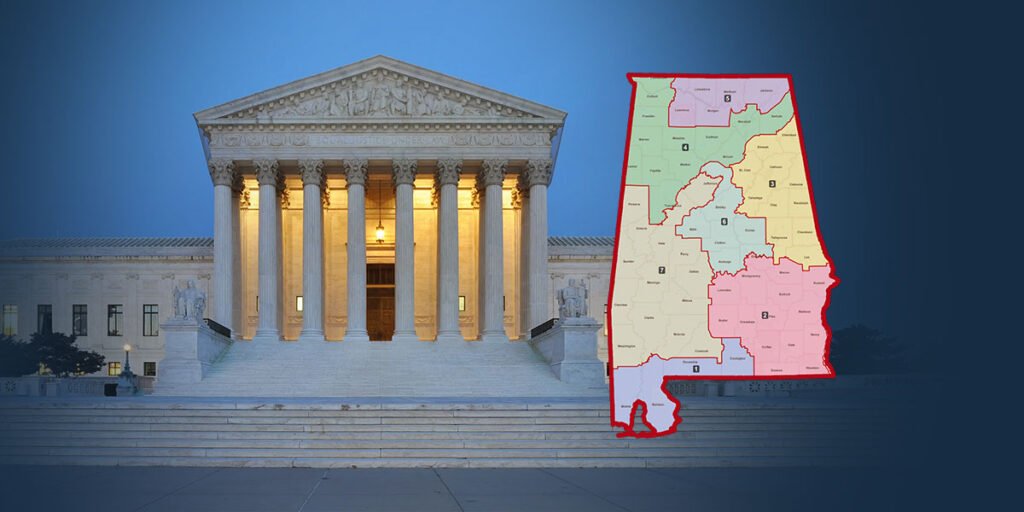
Alabama has initiated an appeal against a federal court’s ruling that rejected the state’s 2023 Congressional map. This legal challenge is part of an ongoing dispute regarding redistricting, marking the state’s third attempt to address the matter in front of the U.S. Supreme Court.
The appeal was submitted on June 6, naming Alabama Secretary of State Wes Allen, state Senator Steve Livingston (R-District 8), and state Representative Chris Pringle (R-District 101) as defendants. This action follows a decision by a three-judge panel on May 8, which permanently prohibited Alabama from using the 2023 map. The panel found that the map diluted the voting power of Black residents and did not adhere to earlier court directives.
The current maps, authorized by court order, were implemented after the state legislature did not comply with prior rulings in 2023. They led to the election of a Congress member from Alabama’s Second Congressional District, marking the second Black individual to represent Alabama in the U.S. Congress. Before this, Republicans had captured six of the state’s seven congressional seats.
Now, the appeal addresses not just the map but also whether federal courts should continue to oversee Alabama’s electoral districts following the 2030 census. Plaintiffs, represented by the NAACP Legal Defense Fund, are advocating for future map alterations to be subject to prior court review to deter discriminatory practices. Conversely, Alabama contests the necessity for continued court supervision.
The court has established deadlines for legal briefs. Alabama is required to respond to the plaintiffs by June 16, with a potential reply due by June 27 if needed. Should the court deem a hearing necessary, it will occur on July 29.
A federal judge previously criticized Alabama’s redistricting efforts during a special session in 2023, recommending the appointment of a special master to design the maps for the 2024 elections, with the aim of ensuring oversight through the 2030 election cycle.
This latest appeal comes on the heels of two prior losses in the Supreme Court, after a lower court determined that Alabama’s earlier maps violated the Voting Rights Act.







